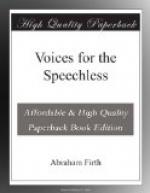(But “Roos” and the “Roan” fell dead on the way; the latter, when Aix was in sight!)
And there was my Roland to
bear the whole weight
Of the news which alone could
save Aix from her fate,
With his nostrils like pits
full of blood to the brim,
And with circles of red for
his eye-sockets’ rim.
Then I cast loose my buff-coat,
each holster let fall,
Shook off both my jack-boots,
let go belt and all,
Stood up in the stirrup, leaned,
patted his ear,
Called my Roland his pet-name,
my horse without peer;
Clapped my hands, laughed
and sang, any noise, bad or good,
Till at length into Aix Roland
galloped and stood.
And all I remember is, friends
flocking round
As I sat with his head ’twixt
my knees on the ground,
And no voice but was praising
this Roland of mine,
As I poured down his throat
our last measure of wine,
Which (the burgesses voted
by common consent)
Was no more than his due who
brought good news from Ghent.
ROBERT BROWNING.
* * * * *
DYING IN HARNESS.
Only a fallen horse, stretched
out there on the road,
Stretched in the broken shafts,
and crushed by the heavy load;
Only a fallen horse, and a
circle of wondering eyes
Watching the ’frighted
teamster goading the beast to rise.
Hold! for his toil is over—no
more labor for him;
See the poor neck outstretched,
and the patient eyes grow dim;
See on the friendly stones
now peacefully rests his head—
Thinking, if dumb beasts think,
how good it is to be dead;
After the burdened journey,
how restful it is to lie
With the broken shafts and
the cruel load—waiting only to die.
Watchers, he died in harness—died
in the shafts and straps—
Fell, and the great load killed
him; one of the day’s mishaps—
One of the passing wonders
marking the city road—
A toiler dying in harness,
heedless of call or goad.
Passers, crowding the pathway,
staying your steps awhile,
What is the symbol? “Only
death? why should you cease to smile
At death for a beast of burden?”
On through the busy street
That is ever and ever echoing
the tread of the hurrying feet!
What was the sign? A
symbol to touch the tireless will.
Does he who taught in parables
speak in parables still?
The seed on the rock is wasted—on
heedless hearts of men,
That gather and sow and grasp
and lose—labor and sleep—and
then—
Then for the prize! A
crowd in the street of ever-echoing tread—
The toiler, crushed by the
heavy load, is there in his harness—dead.
JOHN BOYLE
* * * * *
PLUTARCH’S HUMANITY.




